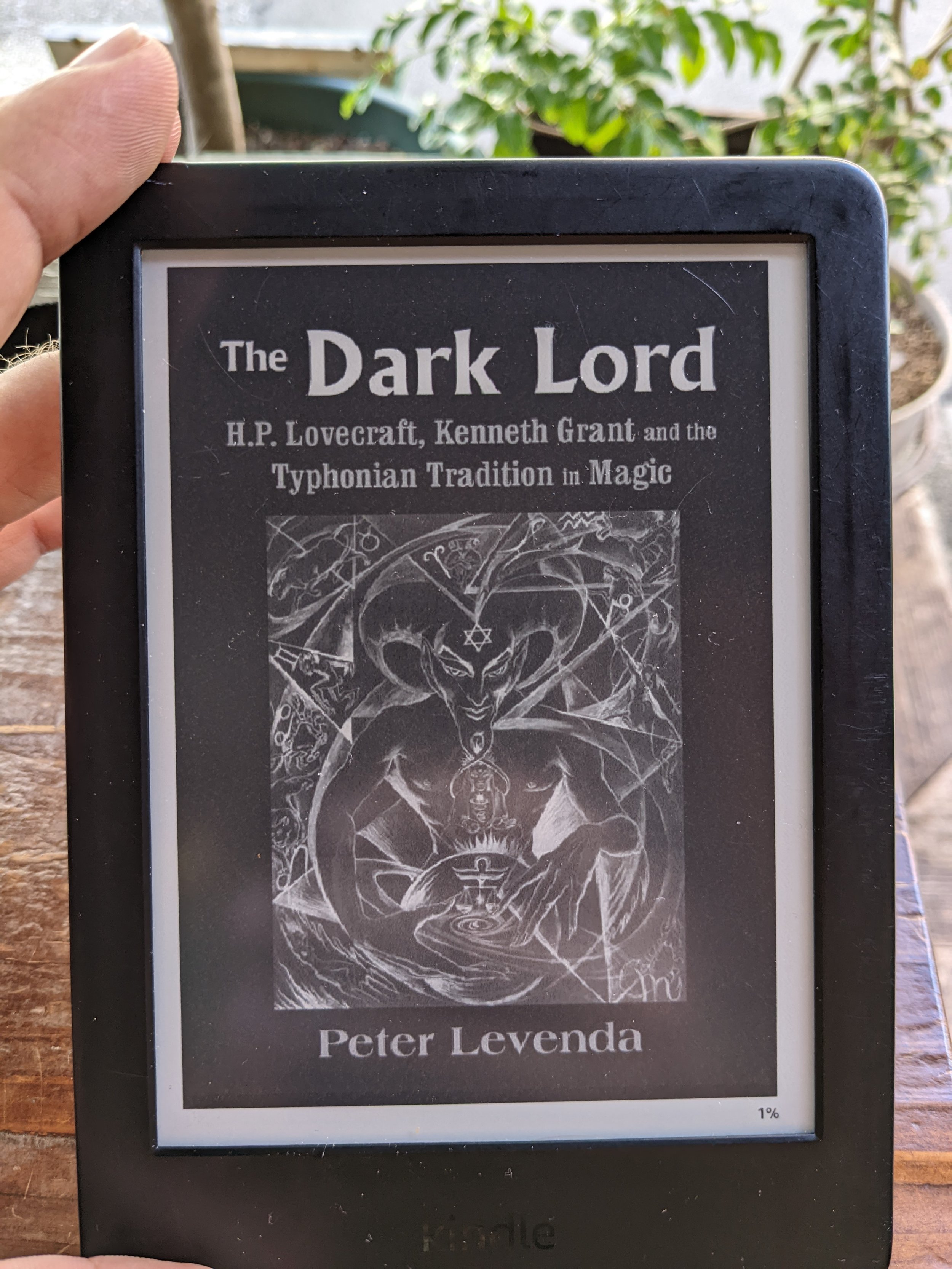THE DARK LORD: H.P. LOVECRAFT, KENNETH GRANT, AND THE TYPHONIAN TRADITION IN MAGIC - PETER LEVENDA
Some bizarre shit in here. Not sure where I came across this book, I believe I was interested in Levenda, who wrote (tho he denies it) the Necronomicon and is currently very involved with the Blink-182 guy’s quest to uncover alien info. The whole alien disclosure thing remains very interesting and suspicious, even more so now that I’ve read this Levenda thing and have something of a read on his whole deal. Besides the Necronomicon, the most famous thing Levenda has written concerns Nazis and the Occult and this book plows a similar field. There are no Nazis, per se, but the book is fascinated with a dark and “evil” strain of occultism, which he tracks and spins out. Basically, Levenda takes Grant’s writings, some of which I’m familiar with and all of which is pretty deep in the weeds, and explicated and gives context. The main thesis seems to be that Crowley and Lovecraft, despite not knowing each other, were on a similar wavelength (Levenda makes multiple mentions of the fact that Crowley had a profound experience with a extramundane entity named Aiwaz in Cairo at the same time the NOLA cult in Call of Cthulhu is supposedly doing their dark rites) and that the Cthulhu stuff is realer than supposed. Grant spent a lot of his life trying to contact these entities and identifies them with Set and other Dark Gods (like Satan,Typhon, Shiva), and he claims that contact with entities is the main point of magick. Personally, I would say that Lovecraft’s work seems to be an analogy for a racist’s horror in hearing jazz music and Crowley’s is largely an elaborate excuse to have gay sex, but if we take it seriously Levenda shows so interesting connections. Both seem to have picked up on the idea of “dark” extraterrorestrial or supramundane forces making contact with and having sex with humans. Lovecraft views it as horror, Crowley seems interested at a minimum. He follows Grant in jumping from tradition to tradition, we get references to the Vedas, Vodun, Palo Mayombe, Yazidism, Kabbalah, tho I would argue that neither one of them has a great grasp of the all the source material (neither reads Sanskrit, the Vodun stuff is surface level and no one who isn’t a Yazidi really has a good grasp of Yazidism), but as someone who is also interesting in all of these subjects, there’s some good stuff to chew on. It contains some of the best writing I’ve been able to find on the Qliphoth and the stuff about the ways Lovecraft’s writing affects real work and obsessed people is also very interesting. He’s easily the most hyperstitious writer we’ve had so far, the idea that Grant and others spend their whole lives trying to contact fictional creations of his is fascinating, especially since that is basically what happens in the stories themselves. The comparative religious stuff is intriguing but I would have preferred more rigor. Grant is very taken with words sounding like other words, across languages and cultures, and deciding that makes them related. There is some interesting stuff about human sacrifice at the end that I wish got more play, it seems like it bubbles below the writings of Grant and Crowley and they both seem like they’d be interested in it. Either way, one of the more interesting takes of Lovecraft I’ve seen. If you’re into Crowley or Lovecraft or want an intro to Grant, it seems worthwhile, as religious study, much less so. 666 dark lords.
